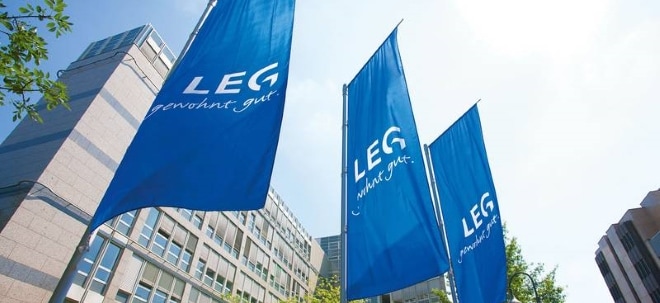Das Managememt von Lloyds ist stockkonservativ und hat die Akquisitionswelle der anderen britischen Banken in den letzten 10 Jahren nicht mitgemacht. Auch das Subprime-Engagement ist sehr klein. Das zahlt sich jetzt aus. CEO Daniels konnte für die Postbank und die Allianz bieten. Die Gebote wurden allerdings auf Betreiben der Shareholder zurückgezogen, da Allianz mit der Dresdner auch Dreck am Stecken hat und man die gute Kapitalsubstanz von Lloyds nicht gefährden wollte. Problematisch bei Lloyds ist, dass 50 % aller Kredite in britischen Hypotheken (auch viele gewerbliche) stecken - und die Hauspreise fallen in England inzwischen ähnlich wie in USA.
Nach dem vom Telegraph (unten) referierten Worst-Case-Szenario für 2009 könnte dies die Gewinne deutlich schmälern, sollte aber (nach jetzigem Ermessen) nicht zu Verlusten führen (KE wie bei der RBOS sind daher unwahrscheinlich). Gefährdet wäre allerdings die beim jetzigen Kurs mit 13 % extrem hohe Dividende. Lloyds verdient zurzeit gerade mal 20 % mehr als das, was für die Div. ausgeschüttet wird. Sollte der Gewinn nach obigem Worst-Case-Szenario um 60 % fallen, müsste wohl auch die Div. gekürzt werden.
TELEGRAPH (U.K.)
Lloyds TSB's caution pays dividends
Last Updated: 1:30am BST 13/07/2008
Britain's fourth-largest bank is determined to reap the rewards of its chief executive's conservatism and its chairman's exuberance, reports Philip Aldrick
Eric Daniels, Lloyds TSB's chief executive, is known in the City as "The Quiet American". In five years leading Britain's fourth-largest high street bank, with rivals expanding overseas or attacking the UK mortgage market, Daniels has at times appeared little more than a spectator.
His moment has finally arrived, however. Bids last year for the stricken Northern Rock and, more recently, Germany's Deutsche Postbank and Allianz's retail banking unit Dresdner have signalled his intentions. Having restored the bank's fortunes, Lloyds' management now has a clear shareholder mandate and Daniels is being encouraged to use it by chairman Sir Victor Blank, a formidable City presence.
Blank is a useful foil for Daniels' natural conservatism. As one insider noted: "Victor has emerged as a chairman who has a lot more strategic involvement than [his predecessor] Maarten Van den Bergh. He has strong views and influences strategic thinking."
For the time being, though, Blank may have to rein in his exuberance. As one large institutional shareholder observed: "People are paying a premium for conservatism at the moment. Lloyds is relatively securely positioned and the reward should come in the share price. That should guide the board, rather than any plan to build a big empire."
Lloyds is listening. Last week, Blank and Daniels pulled out of potential £6bn bids for Postbank and Dresdner largely because of shareholder resistance.
Bankers believe that buyers will now wait until the end of the year before taking the plunge. By then, the worst of the problems at target banks should be visible and buyers will have a better picture of their own health. Lloyds may also find itself leaned on by regulators to put Bradford & Bingley out of its misery before then. Alliance & Leicester is also seen as a viable target.
Daniels has learned to be patient. To his credit, he did not buy into the recent credit boom. Writedowns so far have been a comparatively insignificant £580m. Last August, just days before the credit crunch struck, Daniels observed:
"In the last decade, we've lived in a wonderfully benign environment and if you took a lot of risk you were rewarded. But is the cycle always going to remain benign?" Those were prescient words. In little more than a month, Northern Rock was on the rocks and banking stocks were on the skids due to the US sub-prime crisis.
Lloyds' cautious strategy is finally emerging triumphant: the share price says it all. Lloyds has outperformed Britain's banking stocks by about a third in the past year.
(Das ist nur "relativ" tröstlich, da sich die anderen UK-Banken teils geviertelt haben)
Daniels has never made any secret of his ambition to make acquisitions. When he took over, Lloyds was in crisis. The £7bn purchase in 1999 of Scottish Widows, the life assurer, had been timed disastrously. Lloyds overpaid, and initially Scottish Widows consumed Lloyds' capital - threatening the dividend.
It was a turbulent period. Daniels ultimately decided to preserve the dividend, which he has described as "an almost sacrosanct commitment", but the boardroom row cost him his respected finance director, Sir Philip Hampton, now chairman of J Sainsbury.
To restore Lloyds' fortunes, Daniels devised a strategy of first stabilising the business, then gathering growth momentum and finally looking at "inorganic opportunities". Rather than aggressively pursue new customers, Lloyds focused on service and cross-selling. Slowly, the business turned the corner until last year it was able to raise the dividend for the first time since 2002.
After its early bid for Northern Rock was rebuffed by the Government last year, Lloyds spied an opportunity -in Germany. The Landesbanks and co-operatives, the state-run banks that control over half of the retail market, have been decimated by the sub-prime mortgage crisis.
Andrew Stimpson, an analyst at Keefe, Bruyette & Woods, said: "Now that a lot of the Landesbanks have got into trouble, they will have to drive more profit from the core business. Together with consolidation, this could lead to rising profit margins."
There are other alluring dynamics. Germany may be the largest economy in Europe, but the volume of residential debt as a proportion of GDP is among the lowest. Deutsche Bank's Josef Ackermann is said to believe this could be the moment the country's parochial banking system will be overhauled. Blank and Daniels wanted to join in.
But, for all its relative success, Lloyds is not immune from the UK's economic problems. With no presence outside the UK, economic fears have seen its shares halve in the past year. Half its £350bn loan book is in mortgages and its corporate lending is highly exposed to troubled commercial property. The bank also has a large unsecured lending portfolio.
Dresdner Kleinwort is forecasting £2.1bn of impairments next year, which rises to £4.25bn under its "nightmare scenario", against £1.8bn in 2007. If impairments had been as high as the "nightmare" case in 2007, profits before tax would have tumbled from £3.9bn to £1.45bn, putting the dividend under pressure once again. At 1.2 times covered, the board has little room for manoeuvre.
For Daniels, reining in his ambitions to capitalise on the bank's relative strength may be a source of tension - particularly with Blank so keen to pursue new strategic directions. For a deal to be worthwhile, investors and bankers say, it will need to deliver new skills and products that can be spread across the group or offer significant cost synergies.
Withdrawal from the potential German bid has only served to enhance the board's reputation - displaying a desire to look seriously at transactions without risking shareholder value. Far from being mere spectators, Blank and Daniels will play a central role in British banking's next chapter. |


 Thread abonnieren
Thread abonnieren


